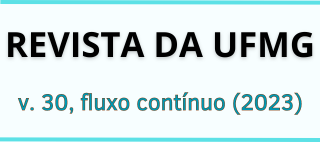Companion machines
technologies for care, autonomy and interdependence
DOI:
https://doi.org/10.35699/2965-6931.2023.46904Keywords:
domesticity, autonomy, accessibility, technology, care economyAbstract
This essay intends to organize and discuss some ideas around the use of technologies within the domestic space as tools in care work. From the delimitation of this term and its latencies from the COVID-19 pandemic, here we discuss how these “companion machines” have been assimilated to bring autonomy and accessibility to the elderly and people with disabilities, as well as the meaning of these two terms in the context of the capitalist society in which these technologies are inserted. Focusing mainly on resources that use artificial intelligence, the way in which they are conceived and their relationship with the end user/consumer is discussed, suspending the rapid assimilation of these resources and proposing a hesitation to think about their ambivalences.
Downloads
References
BEIGUELMAN, Giselle. Máquinas companheiras. Revista Morel #7, 2023.
BUTLER, Judith. Quadros de guerra: quando a vida é passível de luto? Rio de Janeiro: Civilização Brasileira, 2016.
CALLEGARI, Isabela. Para entender a urgência da Economia do Cuidado. Outras Palavras, Disponível em: <https://outraspalavras.net/feminismos/para-entender-a-urgencia-da-economia-do-cuidado/?fbclid=IwAR2SwujYUHcGSL_9TaK5GJ0etSdWgriNRqckTdX-wlhJ7nu3BUU0l5sE3t8>. Acesso em: <14/12/2021>.
CHIANG, Ted. Will AI become the new McKinsey? The New Yorker. Disponível em: <https://www.newyorker.com/science/annals-of-artificial-intelligence/will-ai-become-the-new-mckinsey?utm_source=substack&utm_medium=email> Acesso em: <18/05/2023>
DI BENEDETTO, Chase. Be My Eyes meets GPT-4: Is AI the next frontier in accessibility? Mashable. Disponível em: <https://mashable.com/article/chatgpt-openai-be-my-eyes-accessibility> Acesso em: <16/05/2023>
FEDERICI, Silvia. Da crise aos comuns: trabalho reprodutivo, trabalho afetivo, tecnologia e a transformação da vida cotidiana [2015]. In: Silvia Federici. Reencantando o mundo: feminismo e a política dos comuns. Tradução: Coletivo Sycorax – São Paulo: Elefante, 2022. pp. 254-271
FEDERICI, Silvia. Reencantando o mundo: tecnologia, corpo e construção dos comuns [2015]. In: Silvia Federici. Reencantando o mundo: feminismo e a política dos comuns. Tradução: Coletivo Sycorax – São Paulo: Elefante, 2022. pp. 272-285
HAN, Byung-Chul. Não-coisas: reviravoltas do mundo da vida / Byung Chul-Han. Tradução: Rafael Rodrigues Garcia. Petrópolis, RJ: Vozes, 2022.
HARAWAY, Donna. Manifesto ciborgue: ciência, tecnologia e feminismo-socialista no final do século XX / Donna Haraway. Tradução: Tomaz Tadeu. In: Tomaz Tadeu (org.) Antropologia do ciborgue: as vertigens do pós-humano. Belo Horizonte: Autêntica, 2000, pp. 37-129.
HARAWAY, Donna. Manifesto ciborgue: ciência, tecnologia e feminismo-socialista no final do século XX / Donna Haraway. Tradução: Tomaz Tadeu. In: Tomaz Tadeu (org.) Antropologia do ciborgue: as vertigens do pós-humano. Belo Horizonte: Autêntica, 2000, pp. 37-129
LE GUIN, Ursula K. A teoria da bolsa da ficção / Ursula K. Le Guin. Tradução: Luciana Chieregati, Vivian Chieregati Costa; introdução de Juliana Fausto; posfácio de Luciana Chieregati. - São Paulo: n-1 edições, 2021.
LEVY, Nathália. #12/24: Interdependência. Minha existência na internet. Disponível em: <https://nathalialevy.substack.com/p/1224-interdependencia> Acesso em: <16/05/2023>
MEZZADRI, Alessandra. The informal labours of social reproduction / Alessandra Mezzadri. Global Labour Journal, 2020, 11 (1).
NUNES, Thaís. Por que o Vale do Silício deveria reler Mary Shelley? Thaís Literatura. <https://thaisnunes.substack.com/p/por-que-o-vale-do-silicio-deveria?utm_source=substack&utm_medium=email> Acesso em: <18/05/2023>
TAYLOR, Sunny. The Right Not to Work: Power and Disability. Monthly Review. Disponível em: <https://monthlyreview.org/2004/03/01/the-right-not-to-work-power-and-disability/> Acesso em: <16/05/2023>
The Jetsons (Os Jetsons). Criação: William Hanna e Joseph Barbera. Estados Unidos: ABC Network. Distribuição no Brasil: SBT. Série original: 1962-1963 / Nova série: 1985-1987. Nº de temporadas: 3. Nº de episódios: 75.
VINCENT, James. NY State is giving out hundreds of robots as companions for the elderly. The Verge. Disponível em: <https://www.theverge.com/2022/5/25/23140936/ny-state-distribute-home-robot-companions-nysofa-elliq> Acesso em: <31/05/2023>
WHITEMAN, Vivian. Fome de outro: será que a dependência é tão ruim assim? Elle Brasil. Disponível em: <https://elle.com.br/colunistas/depende-de-voce> Acesso em: <16/05/2023>




